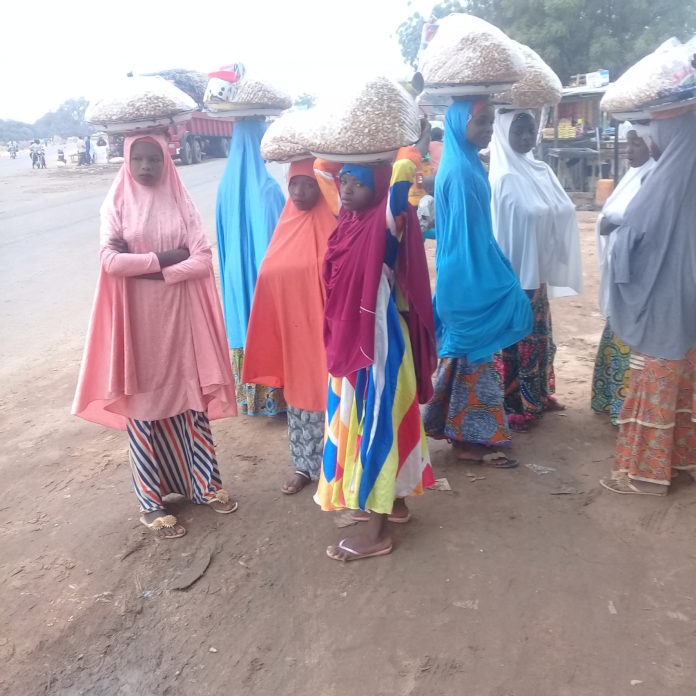The assumption that People in Northern Nigeria hate education for their Children especially girls and their retention in school, certain factors like, poverty make it difficult for some to go to school. With support from Code for Africa Wanadata, Ndidichukwu Odoh writes on girls’ enrolment in school and reduction of out-of school crisis in Nigeria.
Twelve years old Habiba Abubakar loves education and has a tall dream to become a lawyer one day. Though the last time she was in a class room was four years ago, after her graduation from Ube Tayi Primary School in Tayi Community, Minna, Niger State. Now she hawks “waina’ a popular Hausa delicacy prepared with maize or rice grains.
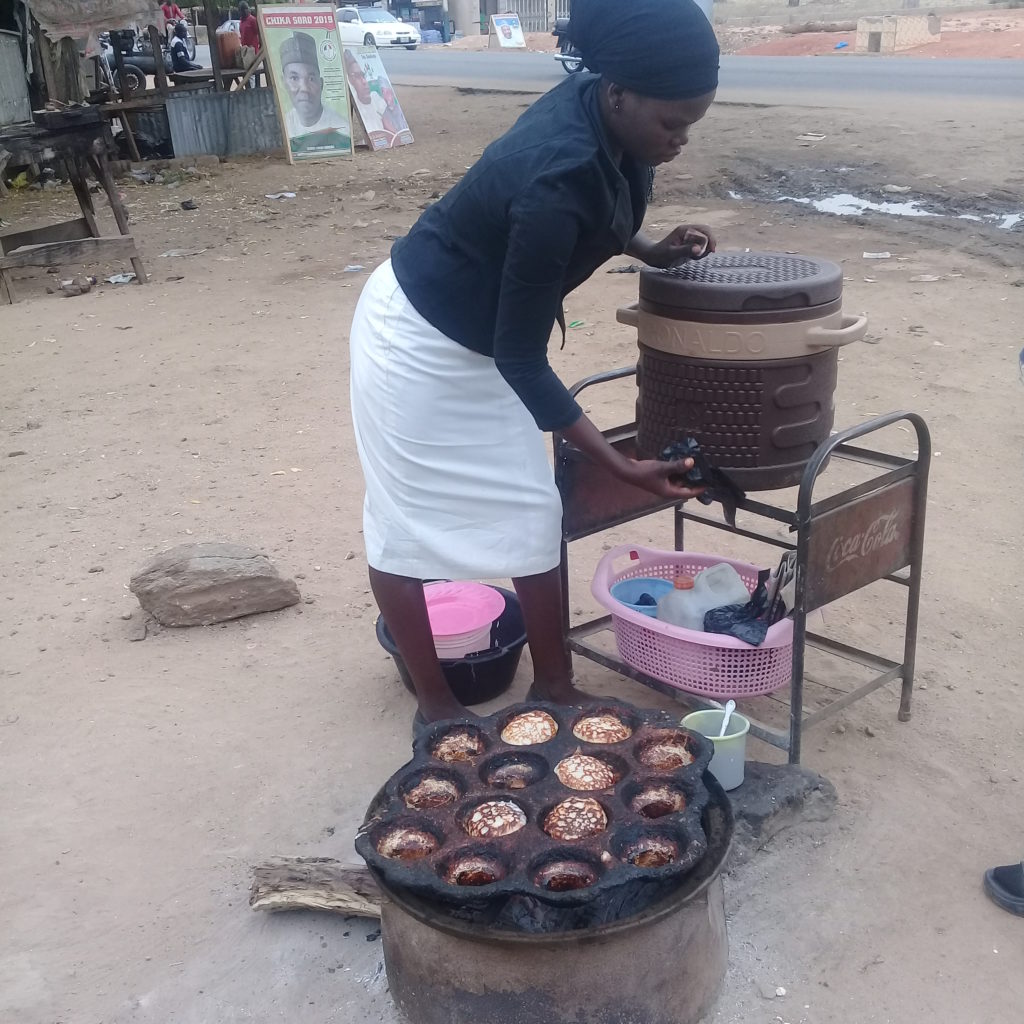
Selling her food at the gate of Federal University of Technology, Minna, Niger State gives her hope that she could return to school from proceeds of her sales. She has made friends with other girls in the school and she “loves the university life” she said. Habiba could not continue her secondary school four years ago because of lack of funds. She has a bedridden father, five siblings and a mother who farms to feed the family of eight.
Though her years out of school continue to pile-up, Habiba could still see a better future because her teacher in Ube Tayi Primary School told her if she is educated she could help her family out of poverty.
“I will go back to school when I am able to raise enough money, I want to be like some of these university girls” with a smile on her face, she confidently said. She is resilient and just one among breadwinner girls in Nigeria.
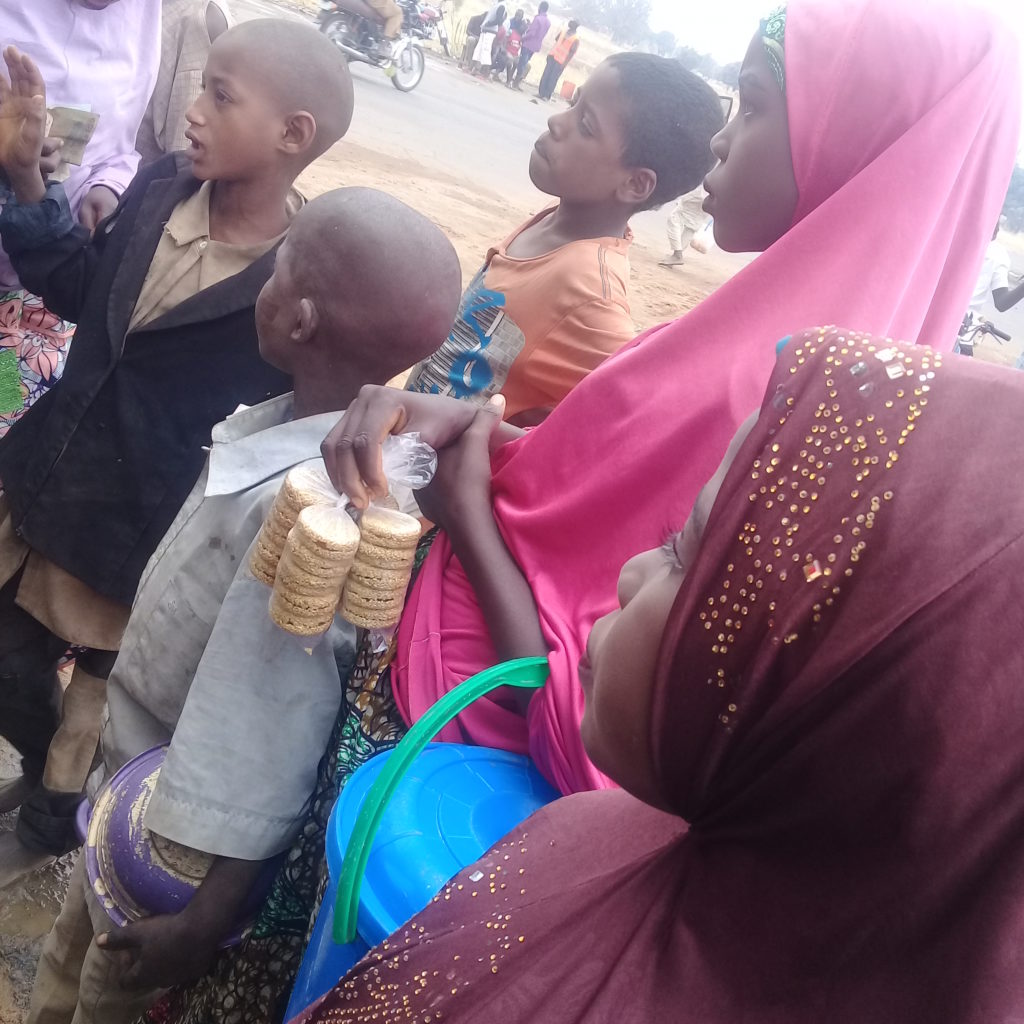
They are called ‘breadwinner girls’ because as children childhood life has eluded them, their families are poor, they are not in school, street hawking is the lifestyle they understand to support their parents financially. Nigerian Girls in this condition are often married out as children by their parents to reduce the cost of survival in the poor family. These girls are also exposed to social vices and violence against children of different types while on the street fending for their families.
Unlike Habiba, “education has been forfeited for business” according to 15 years Asmau Umar who graduated from Borgu Islamic Primary school Borgu, Niger State at the age of 10.
She said “I cannot go to school, we don’t have the money, I sell groundnuts and oil to support my family, my father has three wives I am the 12th daughter, my family has to feed”. Asmau however has male siblings in secondary schools. She said she is not in school anymore because “the boys have to be in school while she gets married soon”
Nigeria has over 13.2 million out-of-school children, the highest number in the world. According to the Executive Secretary of Universal Basic Education Commission (UBEC), Hamid Bobboyi the current number of out-of-school children in Nigeria increased from 10.5 million to 13.2 million between 2010 and 2015. Habiba and Asmau are among the children in this number.
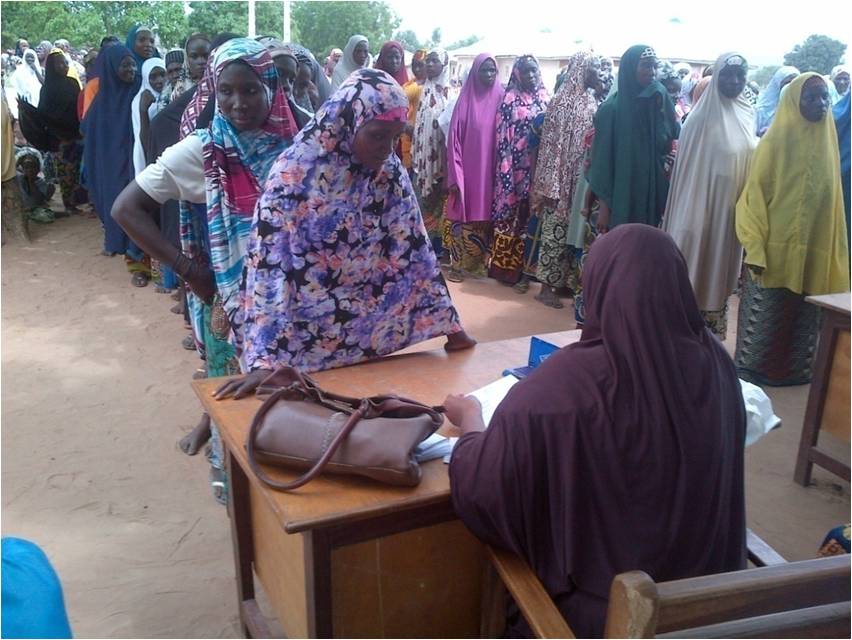
Incentives for education
According to UNICEF, 30% of pupils like Habiba and Asmau in Nigeria drop out of primary school and only 54% transit to junior secondary schools.
Findings from UNICEF also shows that poverty related reasons prevented children especially girls enrolment and retention in schools. It commenced a Conditional Cash Transfer Program which empowered families as well as Improve girls’ enrolment and retention in schools in Sokoto, Niger and Kebbi states.
“UNICEF and other partners found out that instead of sending girls to school, parents allow them to marry at a very young age, some begin hawking to make money for their families at that young age, these are the children who ought to be in school and also enjoy their childhood at that age” Azuka Menkiti Education Specialist UNICEF Nigeria said.
In Nigeria, though basic education is officially free, the reality is that educational related costs do exist, not just fees but also indirect costs and opportunity costs which are often more expensive than the school fees, however Menkiti said the Cash Transfer promoted school enrolment since lack of income is a primary reason why poor parents do not send their children to school.
In Niger State, DFID/ UNICEF and the State Government made financial commitment for the programme in the first two years. The DFID/UNICEF contributed $5 million, equivalent to N825 million, for the two years. While Niger State contributed Twenty One Million Naira (N 21,000,000.00)
The result from Niger state shows that a total of 12,911 girls were identified as beneficiaries from 251 catchment communities for the 2 years, 6 disbursements totalling N365, 705,000 was made, 2988 beneficiaries who were not in school were enrolled on the spot during the 1st disbursement exercise. Though Habiba was not lucky to be among the beneficiaries, the program succeeded in bringing girls in Niger state back to school, continuity after its closure in 2016 has been a challenge. Poor political will to fund the education sector has made it difficult for the government to continue the program to reach more families in the state.
The women in Sokoto state all also were actively involved in driving education through the Cash Transfer programme. A mother, Saudatu Yusuf noted that the benefit of the Cash transfer programme has enabled the women in the area to engage in small buying and selling through the financial assistance from sponsors.
“We will never forget them in a long time. They have been so amazing to us. We will keep encouraging our children to attend school .We have seen the benefit of education. We will keep encouraging our children to follow this path”
Hajiya Saudatu disclosed that there have been improvements in personal hygiene of the students.
“Initially ,my children are reluctant in brushing their teeth and taking their bath ,but now things have changed considerable .We do not force them before they brush their teeth and clean every other part of their body” she added
At the New Rimawa Model Primary school, Sokoto state where Cash Transfer Programme was implemented, school attendance increased.
“The school which was established in 1970 now has a total number of 1170 students, compared to when the number was 595, before the inception of the programme. The school also witnessed increase in both male and female attendance. It has staff strength of 11, with only three female teachers on the pay roll”
“The teachers do not have a seat of their own, where they can be comfortable during school hours .While the student sit on bare floors “says Yusuf Abubakar, the Head Teacher.
A teacher with the Rimawa model primary school, Nureini Idris said the school enrolment had increased greatly since the inception of the Cash transfer programme with 50 boys and 75 girls presently in his class, which is quite encouraging.
“We are trying our best to improve on the quality of education in the school .We want more parents to bring their ward or children to school, so as to reduce the number of out-of-school children”. Idris said.
“The programme is specifically designed to address the poverty-related reasons preventing children to enrol and stay in school giving families an opportunity to cover direct and opportunity costs related to their children’s – especially girls’ – education. It is targeted at increasing school enrolment and attendance rates for boys and girls, as well as enhance the socio-economic wellbeing of beneficiary households” UNICEF Education officer in Sokoto state, Paul Muzingo said.
How the World sees it
“Commitment to Reducing Inequality Index 2018 (CRI)” a recent report released at the annual International Monetary Fund and World Bank meeting in Bali, Indonesia, shows that Nigeria’s position in the ranking has remained constant for two years consecutively.
The report said Nigeria performed low-157 out of 157countries -with regards to respect for women in the workplace and the enforcement of gender rights.
It says “one in 10 children in Nigeria does not reach their fifth birthday, and more than 10 million children do not go to school while sixty per cent of these children are girls”
The report according to Matthew Martin a development Finance International’s director also shows that combating inequality is not about being the wealthiest country or one of the biggest economies but having a political will to pass and put into practice the policies that will narrow the gap between the ultra-rich and the poor.
Inequality slows economic growth, undermines the fight against poverty and increases social tensions. In Nigeria, while Civil Societies have consistently campaigned for increased spending on health, education and social protection to protect children like Habiba and Asmau, allocations have been woefully low.
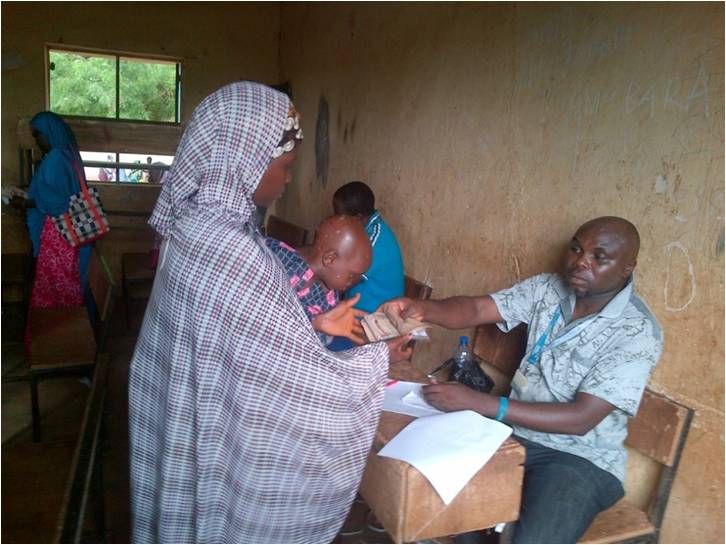
Back Home Education not a priority for government
At the commemoration of 2018 International Day of the Girls Child, Kaduna State Commissioner for Women Affairs and Social Development Hajia Hasfat Mohammad Baba said empowering girls will be incomplete without ensuring that they have comprehensive life planning skills and education.
She said an educated girl will be matured enough to understand reproductive health, rights and life skills such as negotiation, assertiveness, self-esteem, goal setting and decision making.
At the wake of the announcement of the recent 13.2 million out-of-school children, Femi Falana, human rights lawyer, says Nigeria’s out-of-school children increased because states have failed to access the N67bn Universal Basic Education (UBE) fund.
Falana said the fund was lying fallow at the Central Bank of Nigeria (CBN) as at April 30th and only Borno, Gombe, Jigawa, Kebbi, Lagos, Rivers and Federal Capital Territory have utilised the fund up to 2017 adding that the number of out-of-school children in Nigeria is the highest in the world because education is not a priority of state governments.
“Having failed to fund public education, the children of the poor are roaming the streets, hawking goods while the rich are educating their children in private schools at home and abroad. But to the detriment of the society, the abandoned children of the poor are being recruited to criminality by terrorists, kidnappers and other criminal gangs,” he said.
“The irony of the crisis is that a government, which claims that it lacks money to fund education is spending several billions of naira to fight insurgency, kidnapping, armed robbery and banditry.
“To arrest the dangerous trend, it is high time the Nigeria Police Force embarked on the arrest and prosecution of parents and guardians, who refuse to allow their children and wards to acquire basic education,” Falana advised.
Depriving children of education is a violation of their basic human rights. To attain national prosperity and encourage innovation, there is need to build and maintain an inclusive and functional education system, where families see the importance in educating a girl child. The government must review the extra cost imposed on families in private schools while it makes ‘education free’. By educating one girl a whole community grows and benefits from it.


















